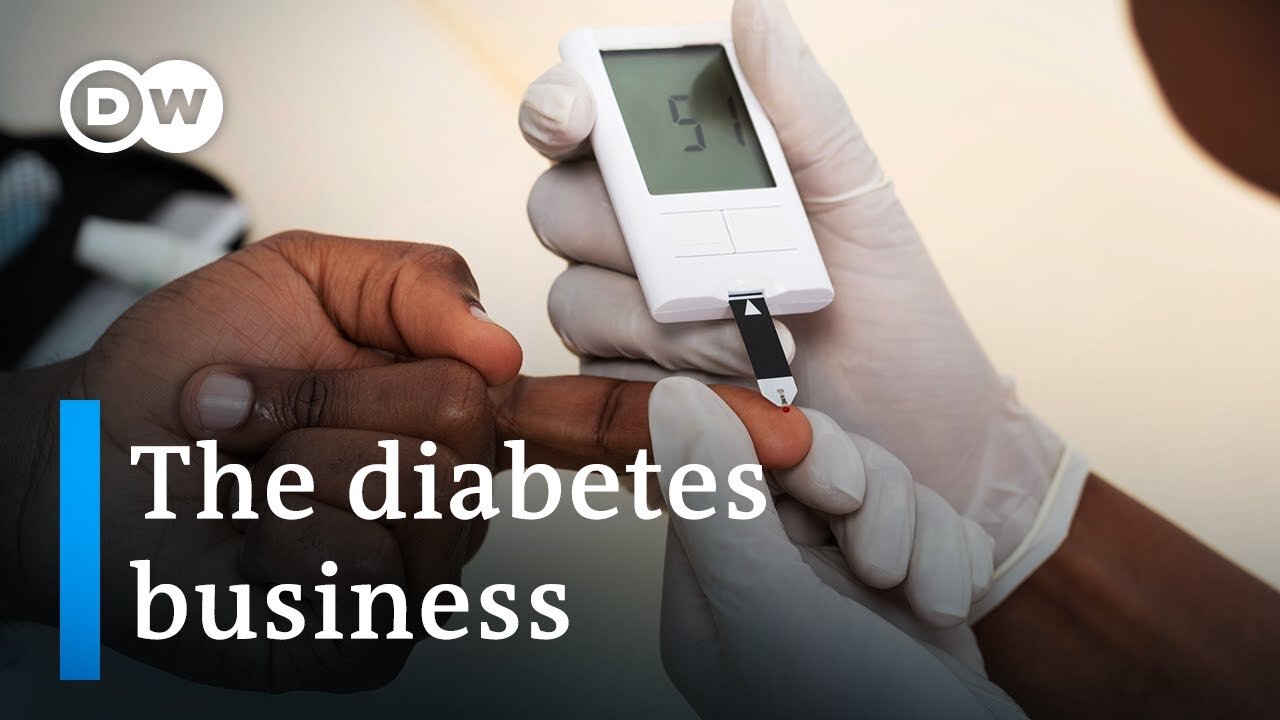Premium Only Content

Diabetes - A lucrative disease
In our modern consumer society, Type 2 diabetes has become a widespread disease. Companies are developing drugs that are increasingly expensive, but not necessarily more effective. Health authorities are powerless.
Diabetes is spreading rapidly, all over the world. The disease destroys lives and puts a strain on public budgets. The UN is calling on governments to take action.
Diabetes is proof that modern societies are incapable of adequately treating chronic disease. It affects around 430 million people worldwide, with two main metabolic disorders falling under the name diabetes. Type 1 is an autoimmune disease that must be treated with lifelong doses of insulin, while type 2 can develop when a person’s diet is too high in fat and sugar and they do not engage in enough physical activity.
With turnover of $46 billion, diabetes is a massive and extremely lucrative market.
Constantly promised miracle cures have not led to satisfactory treatment, with patients either taking too many drugs or no longer being able to afford them. It’s a desperate situation, and the only ones benefiting seem to be pharmaceutical companies.
A medical focus on blood glucose levels has led to an overreliance on medication, sometimes without due concern for dangerous side effects. Patients become trapped in a cycle of treatment, which in many cases still does not halt the disease’s progression. This can lead to amputations, blindness and heart attacks.
And yet there are alternatives that could flatten the curve of the type 2 diabetes epidemic, while reducing health care spending. Improved diet can be a preventative measure, and a strict adherence to diet can also bring about remission in the case of Type 2 diabetes.
But these solutions require effort, as well as a complete rethinking of chronic disease management. Filmed on three continents, this documentary features industry whistleblowers, patients, researchers and medical professionals. It also confronts pharmaceutical companies about their responsibility for the situation.
-
 2:04:09
2:04:09
Nerdrotic
4 hours ago $16.05 earnedNew Peruvian Megalithic Site Discovery w/ Michael Collins | Forbidden Frontier #083
76.6K3 -
 LIVE
LIVE
Fresh and Fit
5 hours agoMyron TRIGGERED Rubi Rose Over This!
6,580 watching -
 LIVE
LIVE
TheSaf3Hav3n
4 hours ago $3.04 earnedCALL OF DUTY: BLACK OPS 6 | A QUIET PLACE: THE ROAD AHEAD | #RumbleTakeOver
1,046 watching -
 LIVE
LIVE
TheNateVibez
3 hours agoOmni-🤖 - First Rumble Stream.🫡 - VETERAN
1,667 watching -
 2:59:26
2:59:26
Tundra Gaming Live
8 hours ago $1.92 earnedThe Worlds Okayest War Thunder Stream//FORMER F-16 MAINTAINER//77th FS//#rumblefam
13K -
 2:32:19
2:32:19
DemolitionDx
3 hours agoSunday night COD with friends.
29.6K1 -
 2:10:14
2:10:14
vivafrei
14 hours agoEp. 237: More Trump Cabinet Picks! MAHA or Slap in the Face? Canada on Fire! Go Woke Go Broke & MORE
185K228 -
 2:23:21
2:23:21
SOLTEKGG
4 hours ago $2.80 earned🟢 First Day on RUMBLE!
30.2K3 -
 LIVE
LIVE
Vigilant News Network
8 hours agoCOVID-Vaccinated Hit With Grave New Reality | Media Blackout
2,006 watching -
 1:26:31
1:26:31
Josh Pate's College Football Show
7 hours ago $2.20 earnedSEC Disaster Saturday | Major CFP Earthquake Coming | Officiating Is A Disaster | New Studio Debut
25.8K1